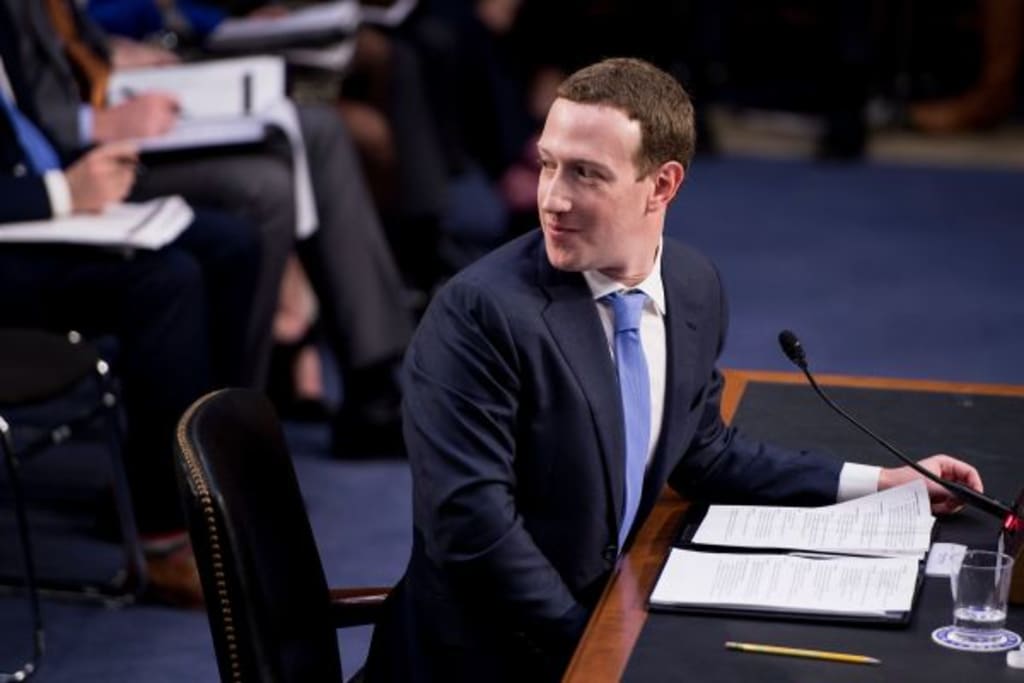Facebook documents show how toxic Instagram is for teens, Wall Street Journal reports
Facebook repeatedly discovered that its Instagram app was harmful to many teenagers, according a Wall Street Journal Report published Tuesday

Facebook repeatedly discovered that its Instagram app was harmful to many teenagers, according a Wall Street Journal Report published Tuesday.
The Journal referenced Facebook studies that were done over the last three years to examine how Instagram impacts its young users, with teenage girls most affected. According to an internal Facebook presentation, 13% of British teens reported having suicidal thoughts and 6% of American teens traced it back to Instagram.
According to the research, "Thirty two percent of teenage girls stated that Instagram made them feel worse about themselves." Facebook reported that 14% of American boys felt worse about themselves after using Instagram.
Facebook has concluded that Instagram isn't causing harm to a significant number of teens, but the Journal found that some of the most dangerous features are part of the company's key components.
Researchers warned that Instagram's Explore page could encourage users to post harmful content. It offers users curated posts from many accounts. It is addictive because it promotes only the best moments and pictures.
According to the Journal, "Aspects on Instagram exacerbate each other to create an ideal storm."
According to the Journal, top executives reviewed the research and it was mentioned in a presentation to CEO Mark Zuckerberg. Facebook is still struggling to address the problem and keep users coming back. Facebook is also developing an Instagram version for children under 13.
Instagram's success is dependent on young users. According to the Journal's materials, more than 40% of Instagram users are aged 22 or younger.
In a blog, Karina Newton (Insta's head for public policy), responded to the reports and stated that the company is looking at ways to get users to stop dwelling on certain types Instagram posts.
Newton stated that they are looking into ways to encourage them to consider other topics, especially if they are seeing the same content over and over again. We are cautiously optimistic that these nudges can help people point them towards content that inspires, uplifts, and, to a greater extent, shift the Instagram culture that focuses only on how people look.
Trahan, following the Journal's report, called for Facebook "immediately to abandon plans for Instagram for Kids", and instead focus on protecting young users.
Trahan stated in a statement that "Facebook's internal records show that the company has failed to protect children on Instagram, especially young girls – and it's been ongoing for years."
"Facebook doesn't have the right to create additional social media platforms specifically designed for our children, when they aren't trusted to maintain their existing house in order."
Rep. Cathy McMorris Rodgers (Republican from Washington), is the top Republican on House Energy and Commerce Committee. She has made children's mental well-being online a key part of her platform. Tuesday's statement stated that Facebook had "refused" to comply with a request by Republicans in March for internal research into its impact on children's mental health.
Facebook spokesperson stated that it is difficult to share company data with outside parties due to the confidential nature of the research as well as confidentiality concerns of participants. The spokesperson stated that Facebook is committed to transparency in its internal research.
McMorris Rodgers stated, "This also leaves them wondering what else they might be hiding." "We will continue demanding transparency from Facebook, and other Big Tech Companies, especially in relation to the harm their products cause to our children."
Discussion drafts have been circulated by Republicans. One of them would require that platforms such as Facebook submit regular reports to Federal Trade Commission about their impact on children's mental well-being.
Facebook knows Instagram is toxic to teens, but they don’t care. Sen. Josh Hawley (R-Mo.) stated on Twitter that he knew this.
Senator Ed Markey (D-Mass.) called the findings of the report "appalling" and tweeted that he would "demand answers from Mark Zuckerberg."
Later, Rohit Chopra, Democratic FTC Commissioner, tweeted: "Given its surveillance-based model and financial incentives, it is yet an additional sign that the company can't be trusted with our information."





Comments
There are no comments for this story
Be the first to respond and start the conversation.